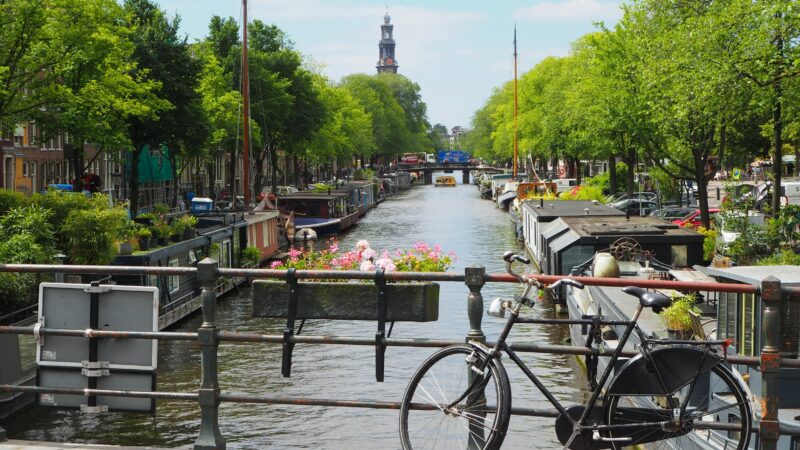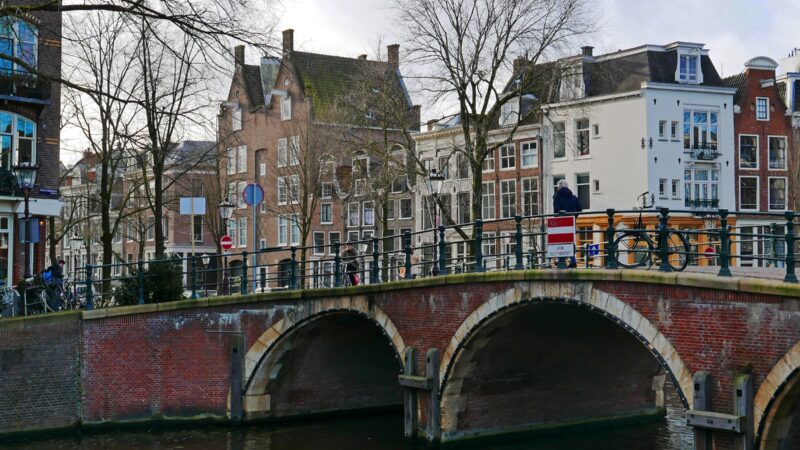The Right in Academia and Politics
As a student at university, it’s easy to be aware that academia is dominated by the left. After all, it is the voices on the left we hear the most. Added to this, a Conservative Party that does not look very conservative at the moment and almost like they are out of ideas – just take a look at the agendas for the Conservative Party Agendas for 2023 and 2022. But over the summer, two academic conferences of note took place, which should bring a glimmer of hope to conservative students.
The first, held at Churchill College at the University of Cambridge from the 6th to 7th July 2023, on British Intellectual Conservatism: Past and Present. This was organised by ResPublica and the University of Public Service. The second, held in the House of Lords from the 14th to 15th September 2023, on Margaret Thatcher: Her Life, Work, and Legacy. This had been organised by two research centres at the University of Hull. The first research centre was the Centre for Legislative Studies, which is led by Lord Norton of Louth, the second by Dr. Matt Beech who leads the Centre for British Politics.
The conferences, naturally, had different focuses but as a participant at both – and having had time to reflect on them, there are four things I found in common. These conferences were full of enriching academic thought, they were both thought provoking, provided a space to be reflective, and to think ahead to the future. In the current climate when it looks as though the Conservative Party will be unsuccessful at the 2024 General Election, both conferences highlighted the need for a better vision.
The two conferences in their own way provided a means to push back against the narrative we see that the right are out of ideas. Rather, the conference on British Intellectual Conservatism: Past and Present consisted of several panels, from Conservatism Today to addressing Free Speech and Conservatism. There were also two panels dedicated to two of the great leaders of the Conservative and Unionist Party, a panel on the Age of Churchill, another on the Age of Thatcher. All in all, the conference did exactly as the name of the conference said it would. A key focus of the conference was on the works of Roger Scruton and bringing his ideas, which may have been forgotten to the forefront. There is much to be learnt from this conference.
For the conference on Margaret Thatcher, many ideas were shared. The main takeaway raising the issue that politicians today do not have a long-term vision. Many who praise Liz Truss and her allies say “she did what Thatcher did” but what people fail to recognise and remember: Thatcher spent many years developing her ideas with a team before those ideas became policy.
There are lessons to be learnt from the conferences. It is people, no matter their role in politics, whether they work in academia, policy or aspire to be an elected representative, who need to take a step back. There are many great people we can learn from, but the problem with the world today is everyone is looking for the next great thing. The rivers of free-flowing conversation of ideas from conservative academics and politicians needs to be opened up before anything else can happen.










The Importance of Brexit
“Necessity is the plea for every infringement of human freedom: it is the argument of tyrants; it is the creed of slaves.” – William Pitt (speech to House of Commons, 18 November 1783).
In light of the recent immigration figures, many are starting to question if Brexit was really worth it. The revised figures from ONS show an unprecedented and almost comical increase in the number of arrivals after Brexit, with net migration jumping from less than 300,000 to over 600,000 between our departure from the EU in 2020 and 2023.
So-called “Bregret” (portmanteau of Brexit and Regret) afflicts both Leave and Remain voters. Even Nigel Farage, the embodiment of British euroscepticism, has been quoted as saying: “Brexit has failed.” Of course, the full comment was along the lines of “Brexit has failed under the Conservatives” but this hasn’t dissuaded journalists and Remainers from circulating the quote as a form of anti-Brexit propaganda; particularly useful when all your senile prophecies of Brexit-induced calamity fail to manifest.
Hoping to capitalise on this growing sentiment, Ursula von der Leyen, President of the European Commission, after making a long-winded joke feinging ignorance of Britain’s existence, said the UK had “goofed it up” by voting for Brexit and said it should reconsider its decision to leave. Von der Leyen added that it was the job of the young to reverse Brexit and that re-unification was “the direction of travel” for the UK.
Why exactly Von der Leyen believes reversing Brexit is top priority for Britain’s youth, I’m not so sure. Indeed, you’d be hard pushed to find something more lame than bustling about a European bureaucracy, tasked with placating the asinine prejudices of some overpromoted schoolmarm. I must say, I was hoping for greater clarity from the so-called grown-ups. One moment they’re saying good riddance, the next they’re asking us to come back. Truly, a terrible, terrible break-up.
In any case, before we wallow in self-pity about our desire to be an independent country – and it must be said: the British right does love to wallow – let us remember several very important facts about our relationship with the European Union.
First, immigration wasn’t “better” prior to Brexit. Circumstances have worsened, but net migration still increased each year of Britain’s membership. During that time, white British people were projected to become a minority in Britain within just a few generations, a trasnformation which people are slowly beginning to realise would be a disaster for a variety of intersecting reasons, from ethnocultural balkanization to a collapse in social cohesion and civic trust. The EU was more than happy to accommodate these arrivals through direct and indirect means, from inviting migrants to enter the continent en masse to funding NGOs to import them in the name of European Values, a concept which (just like British Values) has nothing to do with being European.
Considering that we are navigating a new political relationship with the EU, our departure should’ve sparked greater interest in European politics. Alas, many politicians and commentators have chosen to overlook Europe in favour of America and the Third World. As such, many have forgotten (or just don’t care) about the state of EU governments and their ability – or rather, their inability – to grapple with mass immigration. Take the hint: our continental companions aren’t voting for nationalists in record numbers because they believe immigration is too low.
In the Netherlands, net migration spiked from less than 100,000 to over 200,000 between 2020 and 2022. Likewise, Germany and Spain experienced a sharp increase in arrivals around this period, whilst Sweden, Denmark, and Italy continue to experience mass immigration and its consequences, despite their ongoing efforts to reduce the number of asylum seekers.
Second, Britain’s membership of the EU didn’t just coincide with mass immigration, it deliberately made immigration far harder to control. Since Brexit, the government has used its powers to liberalise border restrictions, thereby dishonouring the spirit of the vote to Leave. This isn’t inconsequential abstraction. Our membership of the EU was officially discontinued via an act of Parliament, the European Union Act 2020. As Montesquieu tells us, for a law to be interpreted correctly, one must give credence to its unwritten aspects; the reasons behind why it exists at all. As such, it is more than legitimate to factor in the motivations behind the Leave vote, it is required.
Minus a few liberal commentators on the SW1 circuit, the vote to leave the EU was motivated by a desire to see immigration reduced, giving rise to inquiries about the condition of our national sovereignty. In the field of electoral politics, this fundamental concern motivated support for a referendum, coinciding with the rise of the BNP in the early noughties, UKIP’s historic success in 2015, and the Brexit Party’s equally historic victory in 2019.
The failure of the Rwanda scheme was an unfortunate setback for immigration restriction, but the Supreme Court didn’t strike down the Rwanda Scheme because of Brexit, the judges struck it down due to our commitments to the ECHR via the Human Rights Act (1998) and our status as signatories of the UN Refugee Convention (1951) and Protocol (1968). Indeed, realising our circumstance for what it is, it’s clear the solution isn’t less Brexit, but more Brexit.
The EU’s cornerstone commitment to the free movement of people within its borders, alongside various liberal and humanitarian dogmas imposed at the supranational level via the European Court of Justice, doesn’t override such commitments, it compounds them. As such, EU countries trying to get a grip on migration have had to square off against the EU, ECHR and the UN simultaneously. Denmark’s own Rwanda scheme hasn’t borne fruit precisely because of its run-ins with EU law.
Rejoining the EU, throwing away our potential to regulate migration because the current government is doing the opposite, wouldn’t be tactical, it would be stupid. It is like a freeman reapplying his shackles to avoid sticking his hands in a hot furnace.
Third, if we re-enter the EU, we won’t have any bargaining power whatsoever. It’s evident that the EU is moving in the direction of more federalisation, not less. At the end of last month, the European Parliament approved a major treaty reform proposal, spearheaded by everyone’s favourite Belgian liberal europhile: Guy Verhofstadt.
The proposal intends to transform the European Commission from an over-glorified think-tank, one comprised of representatives from every member state to a fully empowered executive cabinet, one comprised of individuals selected by the President of the Commission with less-than-reassuring guarantees of equal representation.
The European Council and the European Parliament would be transformed into upper and lower houses respectively. In possession of equal power, the former would be headed by the President of the EU Commission (thereafter, the EU President) whilst the latter would be allowed to propose laws, remove commissioners, and nominate the President. National states would surrender control over policy pertaining to public health, law and order, industry and energy, education, foreign policy, defence, and border control, whilst giving up environmental policy in its entirety, entrenching a division of devolved, shared, and centralised competencies.
However, the most consequential reform in the proposal would see an end to the EU’s principle of unanimity (all states must agree to a proposed reform) to QMV (Qualified Majority Voting) on a variety of areas, in which just over half (ranging from 55% to 65%) of all member states can initiate EU-wide reform. Touted as a means of making the EU more efficient and decisive, it would effectively allow countries to impose reforms one each other, without regard for democratic consent or national interest.
Even if this proposal doesn’t produce something ‘radical’, federalisation remains a significant threat to national sovereignty across Europe. Keep in mind, the Lisbon Treaty took roughly eight years to materialise. Throughout those eight years, many compromises were made, but the end goal was fulfilled: it moved Europe towards unification with a Soviet disregard for democracy. At the time of our departure, the EU was already on the brink of federalising, possessing all the essential characteristics of a federal union minus central powers of tax-and-spend, something which could change in the near future.
Despite our departure, it’s been business as usual, the EU’s transition from a trade confederacy to a political union hasn’t slowed down. If anything, it has sped up, spurred on by current events and heightening pre-existing political tensions within the union.
As it stands, two blocs dominate European politics: a centre-left bloc lenient to federalisation and a centre-right bloc hoping to dilute and/or reverse certain aspects of federalisation. Many of the right-wing populist parties the British press enjoys construing as hardline fascists have little-to-no intention of leaving the EU. They belong to the aforementioned centre-right bloc, hoping to leverage fiscal handouts from the EU by using the principle of unanimity (hence why many are so keen on getting rid of it) whilst pursuing a more conservative approach on specific issues, such as immigration and judicial matters.
As the three main net contributors to the European project (at least, since Britain left), the establishments of France, Germany and the Netherlands have become increasingly hostile to the perceived impertinence of their Eastern neighbours as well as eurosceptics within their own borders, eager to suppress the political influence of both to make their investments feel like a worthwhile endeavour.
President Macron has waxed lyrical about “Strategic Autonomy” – that is, unifying Europe in response to the threat from Russia and ensure Europe can defend its interests in a world dominated by United States and China – whilst Chancellor Scholz has continuously voiced support for a federal Europe, classing it as politically inevitable and a top priority of his centre-left coalition government. As for the Netherlands, despite the triumph of Wilders, whose government is bound to face legal trouble with the EU over its immigration policies, the country has merged the last of its combat troops with Germany, further raising concerns about the possibility of an EU defence union, shifting the allegiance and direction of militaries away from their respective countrymen and towards a supranational authority.
Erstwhile, Meloni’s Brothers of Italy softened its position on EU membership prior to its electoral victory, partially out of practical considerations (e.g. the failure of Salvini’s hard Eurosceptic approach, Italy’s relatively integrated relationship with the EU, and to maintain access to certain economic packages) and partially out of ideological hangovers, such as trying to pursue a diluted form of the European New Right’s “Right to Difference” at the continental level, coinciding with her party’s historical association with the Italian Social Movement.
Orban’s Hungary also falls into this bloc but is a net beneficiary, meaning the desire to leave is far less potent. However, despite its generalistic support for EU integration, Hungary is decried as a subverise contrarian state, protected from having its voting rights revoked due to an informal alliance with Poland, another major net beneficiary. That said, since Donald Tusk’s victory in the recent general election, this alliance has basically broken down, making the Polish state’s position antithetical to what it was only a few years ago – that is, when it was decrying the EU as Germany’s Fourth Reich. There’s been talk about Hungary forming an alliance with Slovakia’s newly elected left-wing populist and eurosceptic government, but this seems more hearsay than fact.
If Britain were to rejoin the EU, it wouldn’t matter if we aligned with the centre-left or the centre-right, as the outcome is very much the same: should we rejoin, we’re destined to be less free than ever before. A unified continent has never been in Britain’s interests. It wasn’t in our interests in the 1800s and it isn’t in our interests now, and there should be absolutely no excuse for empowering an organisation which does not respect our interests, regardless of our membership status.
The Conservative Party is going to lose the next election because of its reactionary liberal tendencies, having betrayed the trust it was bestowed to act as custodian of the Brexit revolution. Consequently, a neo-Blairite Labour Party is going to take up the reins of government, not because of popular support but because disaffection with Britain’s increasingly unresponsive political institutions.
Ever since the referendum, the entire political establishment has been scrambling to find a different route to the end of history, but these are largely short-term fixes. If the UK can be pushed back into the EU, the centrist anti-political demagogues of British civic life will be more than happy to oblige, and it is this reality which the Conservatives must face.
If the Conservative Party wishes to survive the impending electoral winter. It must undergo a metapolitical transformation, the likes of which it hasn’t experienced since Disraeli carried the party across the threshold of the democratic age. It must realise the historical significance of Brexit, as a genuine and outright rejection of a depoliticised consensus, one which has moved democratically sovereign nations in the direction of becoming technocratically managed open societies.
Given this, British politics should be bursting with excitement, overflowing with zeal about how best to navigate these unchartered waters, yet the political mainstream is utterly stagnant. It’s aware of its own imaginative poverty, yet does nothing to remedy it, opting to regurgitate the last ten years in whatever way it can. To spectate British politics is like watching a perpetually vomiting ouroboros, gagging on its own tail and drenching its body in sick, yet persists on its quest of self-consumption.
This peculiarity is compounded by the fact Britain’s next steps are obvious. At home, we must undertake a great, national effort to ensure Britain can stand on its own two feet, building up social and economic capital in whatever way it can and without hesitatation. We must adopt a survivalist mindset, comparable to Singapore in the aftermath of its ejection from Malaysia. Abroad, we must realise that we have a hostile empire on our doorstep, headed by a vanguard of vandals dedicated to plucking the jewels from Charlemagne’s crown, eradicating any trace of its eclectic ruggedness and vitality, and melting it down for gold in the name of inoffensive minimalism and utilitarian ease.
Downstream of their inability to let Brexit go, these vampires will stop at nothing to collectively punish the British people for voting against their influence. They’ve said so themselves and the people of Europe understand this. We should be funnelling money to hardline eurosceptic parties to undermine the EU from within. Instead, the British government is trying to out-regulate the Germans.
At this moment, Britain is more than a nation, it is a political experiment, one which the entire world is watching. Having rejected the embodiment of the end of history, of the end of politics itself, we must consider ourselves the last hope of democratic sovereignty, the final chance for the nation-state to prove its worth in a world of empires. Should we rejoin the EU after only a few years of independence, the entire world shall bear witness to something far worse than the end of British freedom: the end of alternatives in an age of necessity.
Photo Credit.